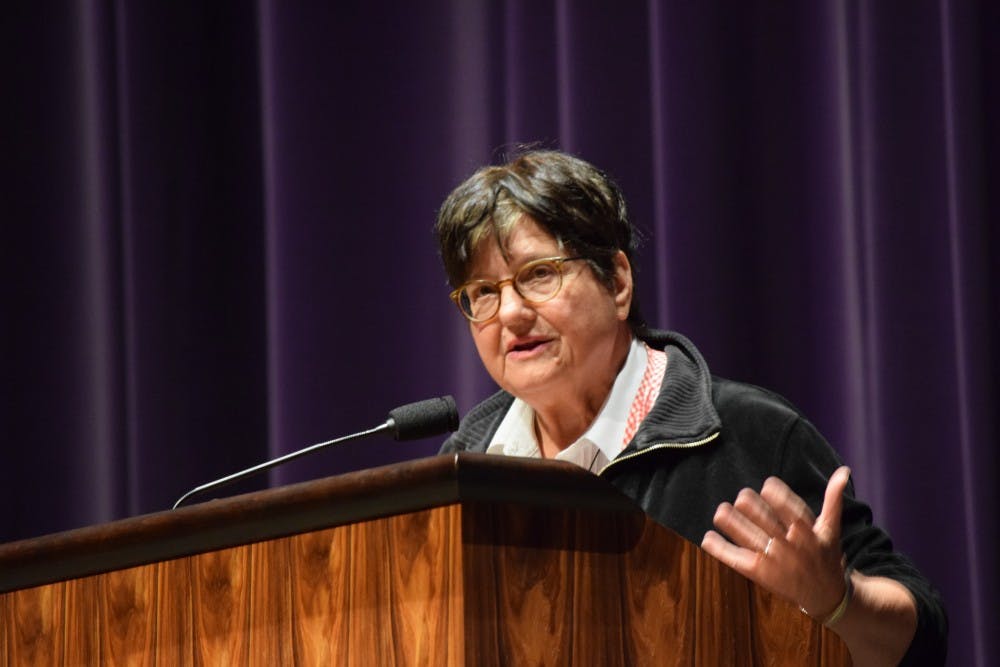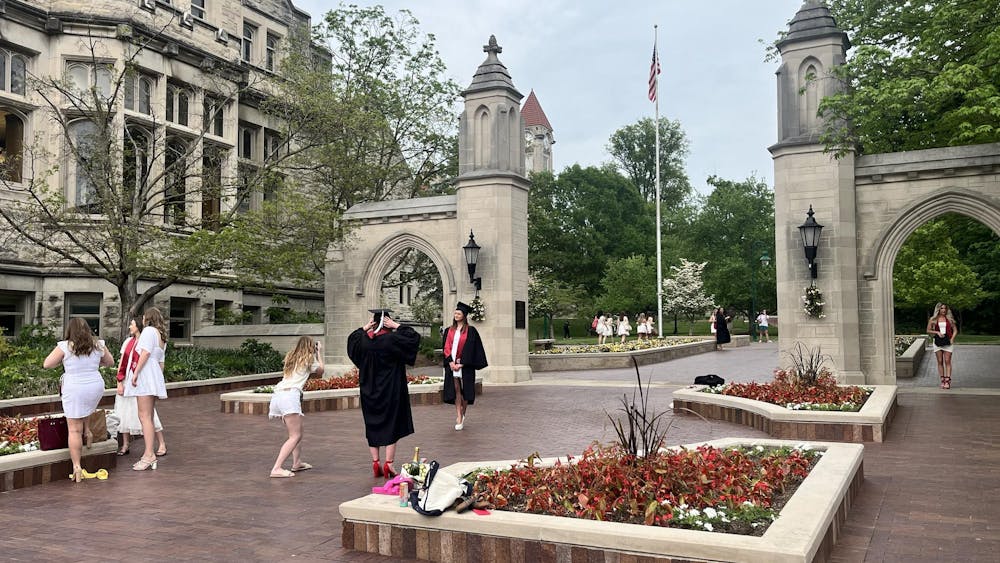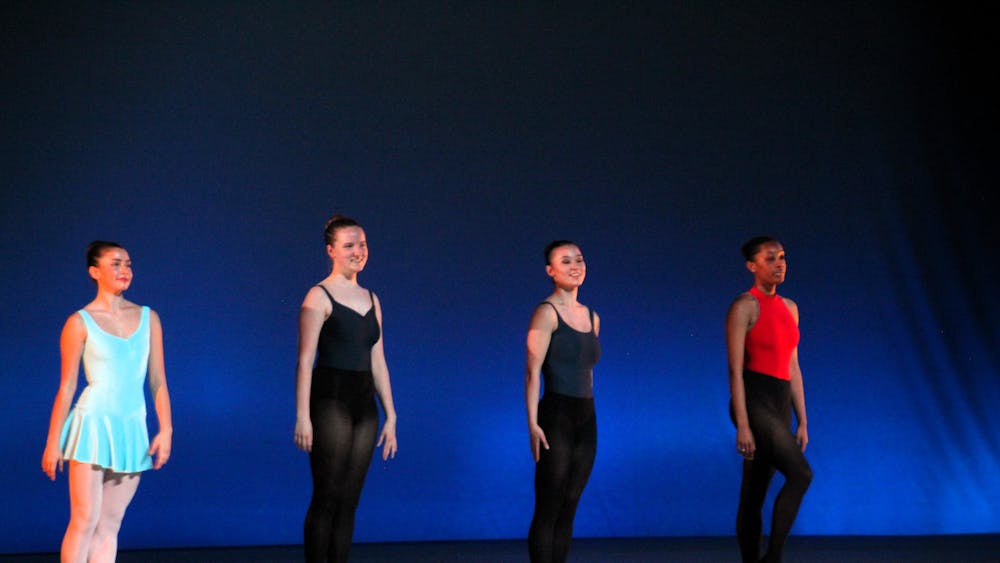“We are all more than the worst act of our life,” Prejean said.
Prejean’s experience as the spiritual advisor to Patrick Sonnier, a convicted killer who was sentenced to death, is the subject of her book. The story is also the basis of the opera “Dead Man Walking,” which had its Jacobs School of Music premiere Oct. 17 in the Musical Arts Center.
Prejean’s lecture, which was held in the MAC, was a part of the “Dead Man Walking Lecture/Discussion Series” sponsored by the music school. It was also in affiliation with the Association for Practical and Professional Ethics: Community and Educational Programs.
Prejean is a nun in the Congregation of St. Joseph, and she is an advocate for the abolition of the death penalty.
Stuart Yoak, Executive Director of the Association for Practical and Professional Ethics, introduced Prejean.
“The book gives us a window into capital punishment and the process of state-sanctioned execution,” Yoak said. “The book, the movie, the play and now the opera “Dead Man Walking” challenges our values and the ethical decisions that we make as individuals and as citizens of this country.”
Prejean said she considers opera to be one of the strongest art forms because it takes the fullness of drama and music that takes people into parts of themselves they do not realize they had. “Dead Man Walking” takes the audience on an incredible journey, Prejean said.
“The aria of Sister Helen in the opera is my journey, and it’s haunting,” Prejean said. “I sing it in the shower.”
One of the first parts of her journey was to open her eyes to injustice, she said.
“When we awaken to a deeper call of justice, it’s always a gift,” Prejean said.
When she became Sonnier’s spiritual advisor she said she was “over her head.”
The opera is important because it shows both sides of a relevant issue, she said, and it shows parts of life that most people may never see.
Part of the tragedy often overlooked is how a crime affects the family of the murderer, Prejean said.
Prejean said her opposition to the death penalty caused anger from victims’ families.
She said she believes she deserved such a reaction, because she cannot blame them for wanting the accused murderer of a loved one to die. The anger of the victims’ families is expressed in the opera.
“We see them in their anger, begging for the death penalty — they are waiting and waiting and waiting for the justice they are promised,” Prejean said. “They suffer an ultimate loss, and they want an ultimate penalty.”
In addition to counseling inmates on death row, Prejean is the founder of Survive, a group that provides support for the families of victims.
Prejean said the death penalty is “legalized revenge” and the system is broken.
Death is not a necessary punishment, Prejean said, and the law cannot take care of all the complexities of life.”
Rachel Evans, a doctoral student in vocal performance, performs the role of Prejean in the opera, and she met Prejean in person before the lecture. Evans said it was amazing to meet the person she portrays on stage, and, like Prejean, she does not believe in capital punishment.
“The performance is about more than just a good performance,” Evans said. “It is about actually doing something important for the community.”






